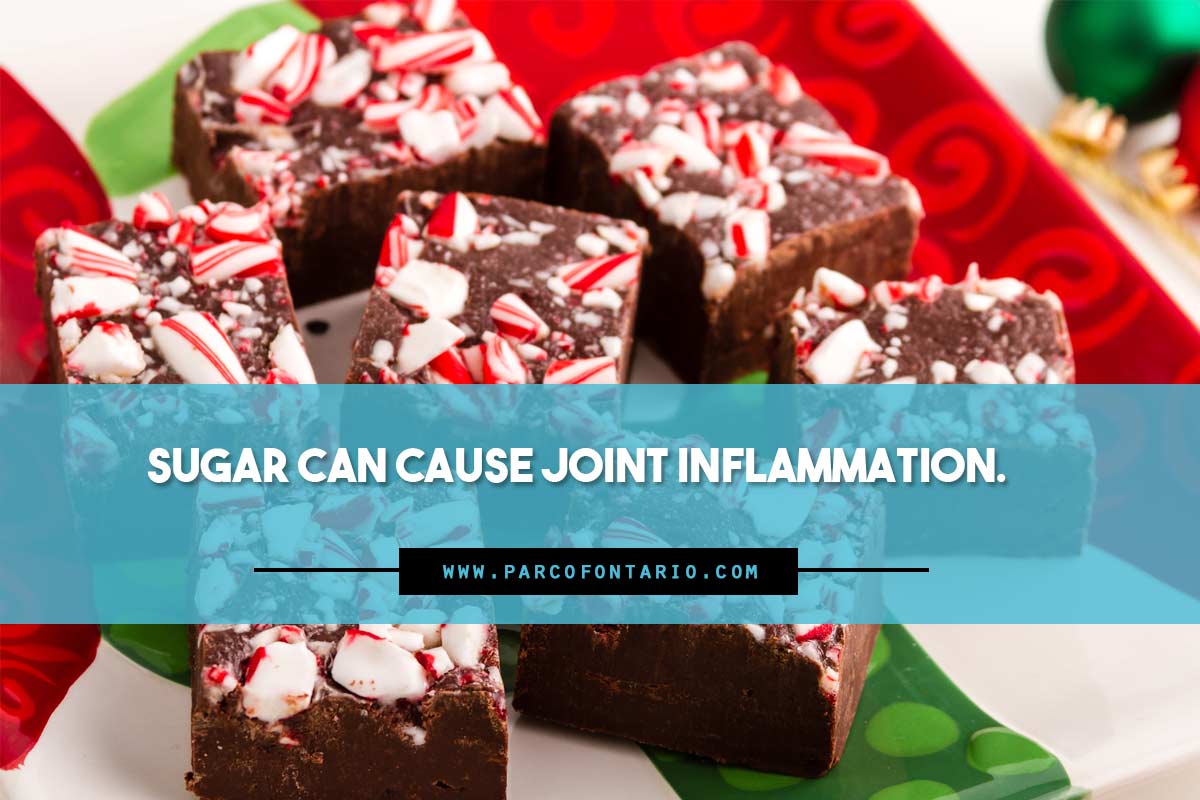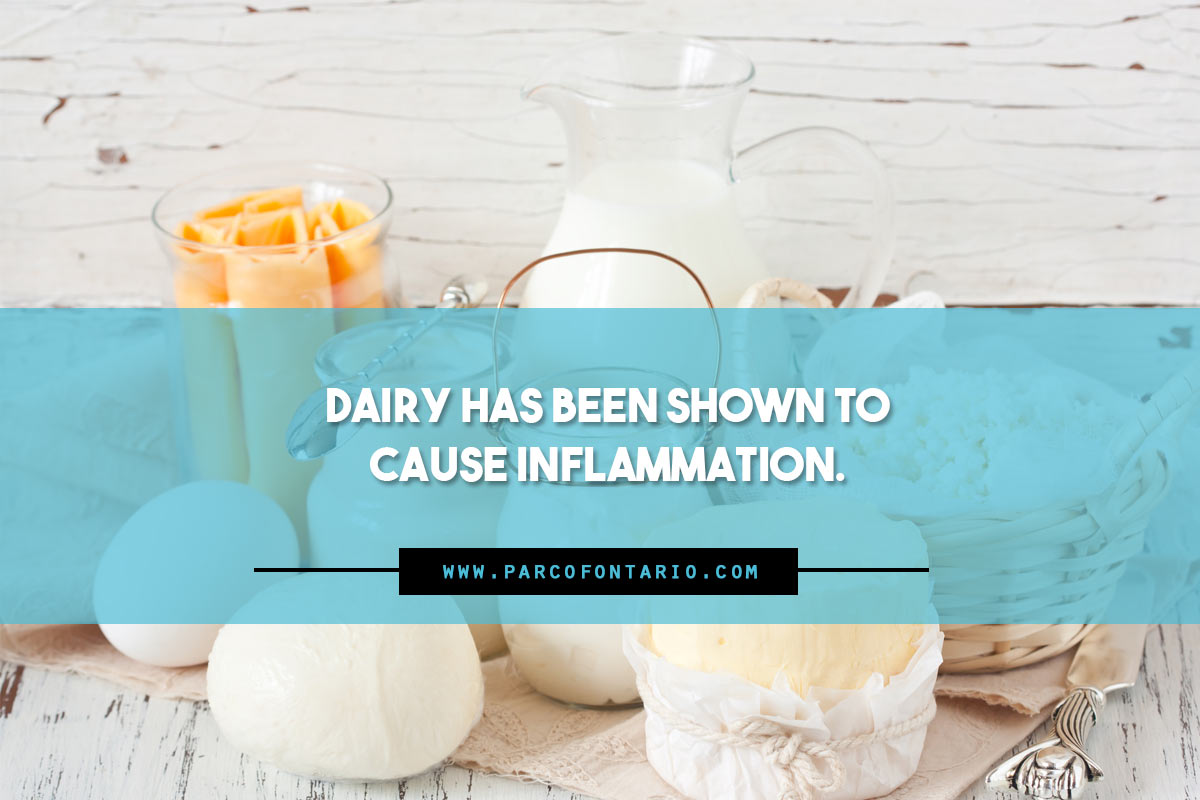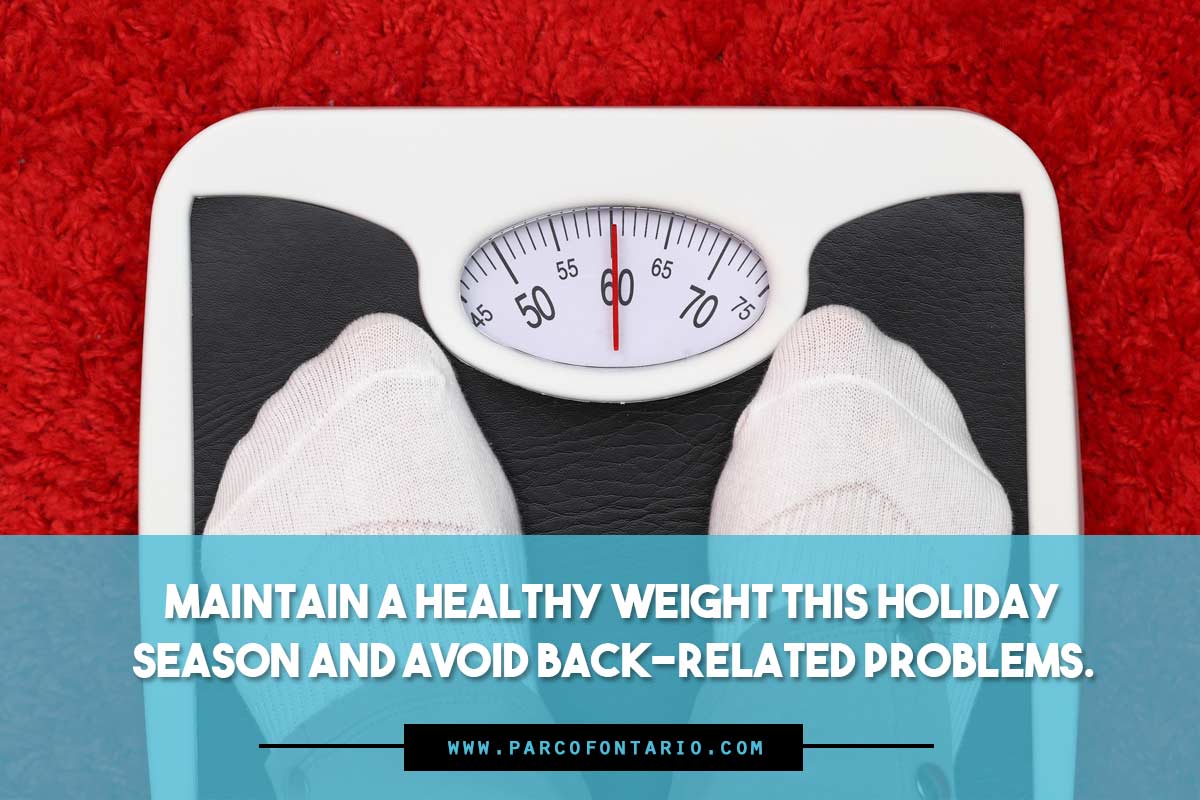How Unhealthy Holiday Eating Leads to Back Pain

The holidays bring family gatherings, festive decor, delicious foods, and sweet treats. The new year is fast approaching—and so are the challenges of healthy eating. Less than ideal food choices jeopardize the good nutritional practices you may have followed throughout the year. Overindulging can cause weight gain and trigger back pain. Dealing with chronic chronic back pain can be challenging and prevent you from enjoying the festivities.
SpineUniverse conducted a survey and found that 69 percent of people will gain at least eight pounds during the holidays. That extra weight can add pressure to the spine, causing it to overwork. This can potentially result in spinal injury and chronic back pain. Inflammation in the spine may even lead to more serious health problems, including:
- Degenerative disc disease
- Osteoarthritis
- Osteoporosis
- Herniated lumbar disc
- Compression fracture
- Spinal stenosis
- Spondylolisthesis

Sweet Treats Contribute to Back Pain
The holidays may not be complete without desserts and goodies, and many people use the season as an excuse to overindulge. Although it may be true that eating sugary foods makes us feel happy, it can also increase back pain. It’s important to understand how sugar affects the body. Eating sugar causes the release of insulin and stress hormones. This process increases the risk of inflammation, leading to chronic pain. Sugar consumption has the greatest impact on joints because there is less blood supply to these areas.
The following tips help regulate blood sugar and reduce the risk of back pain:
- Eat foods with a low glycemic index – The glycemic index affects blood sugar levels in the body. Avoid foods with a high glycemic index to keep those levels in check.
- Reach for good carbs – Good carbohydrates like fruit, vegetables, legumes, and whole grains are packed with fibre, which works to remove toxins from the body. Consuming foods high in unhealthy carbs can increase your blood sugar levels. These include white bread or rice, processed foods, sweets, and sugary beverages.
- Stay hydrated – Drinking a few glasses of water flushes excess sugar from the bloodstream.

- Keep active – Maintaining a healthy weight allows the body to process insulin properly. Regular exercise lowers stress and prevents you from caving into cravings.
- Manage stress – The body releases stress hormones that increase blood sugar levels. Mindful relaxation or deep breathing is an effective way to lower stress during the holidays.
- Get enough sleep – Lack of sleep can also affect the hormones that control blood sugar in your system. Hit the hay early to allow your body to recover from stress.
To satisfy your sweet tooth, choose fruits whenever you can, or try adding stevia in drinks like tea and coffee (you can even bake with it). Fruits and natural sweeteners have vitamins, fibre, and antioxidants that will keep your weight in check and contribute to your overall health.
Inflammatory Foods to Avoid
Many foods contribute to pain and inflammation throughout the body. While over-the-counter drugs or spinal steroid injections may ease symptoms, avoiding certain inflammatory foods can also help. To prevent the risk of chronic pain, refrain from eating the following:
- Trans Fats and Processed Vegetable Oils – Processed, fried, and fast foods have trans fats, and many baked goods are also made with unhealthy oils. Food packaging may say zero grams of trans fat, but the FDA allows up to 0.5 grams of trans fat to be labelled as “zero.” Check the ingredients for fats that lack any nutritional value. Hydrogenated vegetable oils have high levels of trans fats. Corn, canola, and soybean oils have a high ratio of omega-6 to omega-3 fatty acids and may contribute to inflammation. Use unrefined, cold-pressed oils like olive, coconut, and sesame instead.

- Dairy – Milk is a common allergen and many people cannot digest it properly, leading to stomach issues and inflammation. Avoid butter, cheese, cream-based sauces and soups, and baked goods made with dairy products. (If you are not allergic to milk, high-quality raw milk and unsweetened plain yogurt may be fine.)
- Refined Carbohydrates and Grains – Processed grains are difficult to digest and eating them may result in painful inflammation. They also have a high glycemic index and will elevate blood sugar levels. Whole grain breads and cereals are not always as they appear; many are actually made of refined grains and will be labelled as “enriched” in the ingredient list. (These processed foods may also contain sugars and additives as well.) One hundred percent whole wheat products and brown rice are healthy alternatives and will give you the most nutritional bang for your buck. (If you have digestive issues with grains, try soaking them for a few hours. This will make them easier to digest.)
Many processed grains contain gluten, which can cause inflammation in some people. Unfortunately, some gluten-free foods also have added sugar, dairy, or other unhealthy carbs, so read labels carefully.
A balanced diet will boost your immune system and allow your body to heal on its own so you can feel better overall. If you enjoy cooking, experiment with some healthy and delicious anti-inflammatory recipes that the whole family will enjoy.

Avoid Holiday Weight Gain
Prevent weight gain this holiday season by following these tips:
- Do not be a “sampler” – Eat a satisfying, healthful meal before a party to avoid sampling multiple foods, overindulging — or ending up hungrier than usual from consuming empty calories. To avoid temptation, focus on dancing, engaging in conversation, and drinking sparkling water to give you a feeling of fullness.
- Exercise daily – Many people gain weight during the holidays. Unfortunately, they often hold off on a diet and exercise program until it’s time for their New Year’s resolutions. Get a head start now and increase your exercise routine by 15 to 30 minutes to burn off holiday treats. Engaging in simple stretching exercises, walking, or running will also help you lose or maintain your weight.
- Exaggerate the number of calories – Research shows that people who have strong diet goals assume certain foods are more caloric or fattening than they really are. Overestimating calorie and fat content can discourage you from indulging in too many appetizers and unhealthy treats.

If you suffer from back pain, physical exertion may not be effective or even possible. However, physiotherapy and a proper nutrition program can help get your pre-holiday groove back.
The Physiotherapy and Rehabilitation Centres of Ontario have served patients with chronic pain for more than twenty years. For nutritional programs or other rehabilitation services in Ajax, and other areas of the GTA call our team of health professionals at (905) 686-9081.









